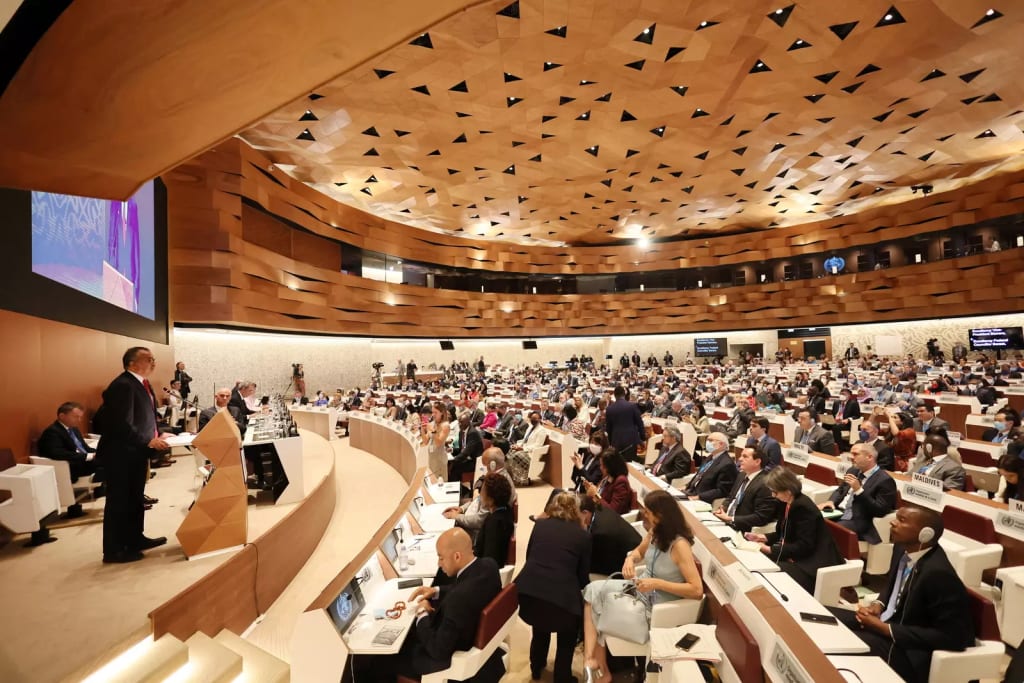What is the World Health Assembly and why is it important?
What is the World Health Assembly

The World Health Assembly (WHA) is a significant annual event that brings together representatives from all member states of the World Health Organization (WHO). It serves as the highest decision-making body of the WHO and plays a vital role in shaping global health policies and strategies. The importance of the World Health Assembly lies in its ability to address pressing health challenges, foster international collaboration, and guide efforts towards achieving better health outcomes worldwide.
The World Health Assembly serves as a platform for global health leaders, policymakers, and experts to come together and discuss a wide range of health issues. The gathering provides a unique opportunity to exchange knowledge, share best practices, and learn from each other's experiences. It enables participants to gain insights into successful interventions and innovative approaches that can be adapted and implemented in their own countries.
One of the key functions of the World Health Assembly is to review and assess the progress made in achieving the health-related Sustainable Development Goals (SDGs). The SDGs, adopted by the United Nations in 2015, set ambitious targets to improve global health, reduce health inequalities, and ensure access to quality healthcare for all. The World Health Assembly plays a crucial role in monitoring the advancements towards these goals and identifying areas that require further attention and investment.
During the Assembly, participants deliberate on a wide range of health issues, including infectious diseases, maternal and child health, non-communicable diseases, mental health, environmental health, and health systems strengthening. They engage in discussions, share research findings, and debate policy options to address these challenges effectively. The diverse perspectives and expertise brought together at the World Health Assembly foster critical thinking and innovative solutions to complex health problems.
Moreover, the World Health Assembly serves as a decision-making body, where resolutions and recommendations are adopted. These resolutions provide guidance to member states on various health-related matters and influence national health policies. They can address critical issues such as pandemic preparedness, emergency response mechanisms, equitable access to healthcare, and the social determinants of health. The resolutions passed at the Assembly serve as a call to action for countries to prioritize certain health interventions and allocate resources accordingly.
In addition to its immediate impact, the outcomes of the World Health Assembly have far-reaching implications for global health governance and diplomacy. The decisions made at the Assembly shape the agenda of the WHO and influence policies and actions at the national, regional, and global levels. They provide a framework for countries to align their efforts, coordinate actions, and work together towards common health goals. The Assembly also serves as a platform for member states to engage in diplomatic negotiations, build partnerships, and strengthen international cooperation for health.
The World Health Assembly is particularly crucial during times of global health crises. The COVID-19 pandemic, for instance, has highlighted the need for international collaboration, information sharing, and collective action to combat emerging threats. The Assembly serves as a vital forum for fostering this collaboration and ensuring that no nation is left behind in the pursuit of better health for all. It provides an avenue for countries to discuss strategies for pandemic preparedness, share data on the spread of the virus, and coordinate efforts to develop and distribute vaccines and therapeutics equitably.
Furthermore, the World Health Assembly serves as a platform for member states to mobilize resources for global health initiatives. It provides an opportunity for countries to showcase their commitments to improving health outcomes and announce financial contributions to support global health programs. The Assembly facilitates partnerships between governments, non-governmental organizations, and the private sector, leveraging expertise and resources to address health challenges effectively.
The World Health Assembly also promotes transparency and accountability in global health. Member states are expected to report on their progress in implementing the resolutions and recommendations passed at previous Assemblies. This reporting mechanism allows for monitoring and evaluation of efforts, ensuring that countries remain committed to their stated goals and objectives.
About the Creator
nizam uddin
My name is Nizam Uddin and I am thrilled to be a part of Vocal.com's community of writers. As a passionate technology enthusiast, I am excited to share my insights and opinions on the latest trends and innovations in the world of tech.






Comments
There are no comments for this story
Be the first to respond and start the conversation.